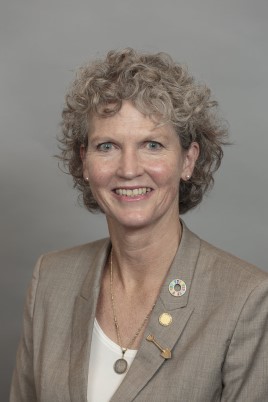Dear WEF member: Earlier this summer, we surveyed WEF members as part of our critical work to improve diversity, equity, and inclusion both at WEF and across the water sector.
Thank you to each of you who had a chance to respond – we couldn’t do this without you! And because we are on this journey together and you are probably curious to know what your WEF colleagues had to say, we are pleased to share the results of that survey and let you know where we are headed next.
We had a robust response to the survey that was representative of membership demographics – we received over 1,500 responses, had 125 people volunteer to be part of focus groups, and conducted a dozen interviews with members. Here are the key messages we heard:
Strengths:
- Broadly speaking, members reported that WEF events and gatherings are welcoming and can even be more inclusive than their own workplaces, especially for those coming from a smaller plant or facility.
- Once engaged with the association, volunteers from all backgrounds reported career benefits.
- The pandemic push to virtual had the positive benefit of improving access to training, such as WEFTEC Connect, virtual conferences, and online learning. This was of particular benefit to operators and earlier career members who don’t necessarily have the time or budget to travel to conferences.
Areas for improvement - About 20 percent of WEF members reported feeling uncomfortable at gatherings and events, whether due to educational elitism, demeaning remarks, or sexist, racist, or homophobic behaviors. Problematic behaviors were often but not always linked to alcohol at events.
- Data showed that women, people of color, or LGBTQ members were less likely to feel a sense of belonging and less likely to have been asked to volunteer or serve on a committee/taskforce.
Why a DEI initiative?
- Some questioned the need for DEI research, suggesting that resources be better directed to solving technical water problems. However, given the shortage of younger skilled workers, most members noted the need to embrace change, welcome more non-engineers to the table, and take strides to better represent the communities WEF members serve.
- Members appreciate that WEF has programs to support a wide range of career development, such as the InFLOW program, Water Leadership Institute, and Operator Scholarships.
Next Steps:
WEF is continuing its work and using these survey results to inform our direction and activities. This summer, we implemented a DE&I policy established by the Board of Trustees, conducted training for 60 key WEF volunteers, and are holding a DE&I strategy planning session in August. We are also working with WEF staff to offer an inclusive range of networking options at WEFTEC, considering ways to help all members get the most out of the conference experience and ensure everyone feels safe and able to participate in the full range of member activities.
Thank you for your membership in WEF and for joining us in this important work.
Visit our Diversity, Equity and Inclusion Webpage



 Lynn Broaddus, Ph.D, M.B.A. is the 2020-2021 president of the Water Environment Federation (WEF), an international organization of water quality professionals headquartered in Alexandria, Va.
Lynn Broaddus, Ph.D, M.B.A. is the 2020-2021 president of the Water Environment Federation (WEF), an international organization of water quality professionals headquartered in Alexandria, Va.